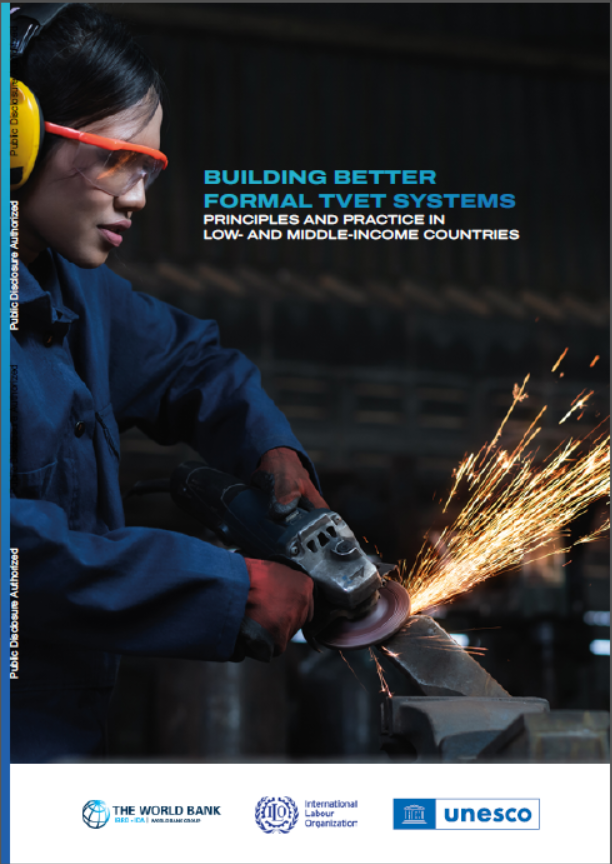This background paper was prepared for for: The World Bank, UNESCO and ILO (2023). Building Better Formal TVET Systems: Principles and Practice in Low- and Middle-Income Countries. Washington D.C., Paris, Geneva: The World Bank, UNESCO, and ILO.
Formal technical and vocational education and training (TVET) systems function in a context of rapid global technological development. Information and Communication Technology (ICT) is enabling exponential increases in the transfer of data through increasingly globalized communication systems and connecting growing numbers of people through those networks. TVET is also grappling with advancements associated with the Fourth Industrial Revolution (4IR). Advancements associated with the 4IR provide an opportunity to create and share a greater diversity of learning resources, thereby accommodating varying student needs. Increasing digitization is driving changes in areas such as organizational structures and processes, technological infrastructure, and pedagogical approaches. Technological trends are global, but their impact on high-income and technically advanced countries is very different from that on low- and middle-income countries (LMICs). These trends require formal TVET systems to transform, both in terms of the kinds of programs they offer and how they offer them.
The paper focuses on key issues like why does technology in TVET matter, provides a conceptual framework that maps possible roles for EdTech in TVET, and outlines various opportunities for EdTech in TVET. It goes on to describe key trends and approaches in Edtech in TVET including several case studies. The paper also highlights challenges faced and lessons learned.

